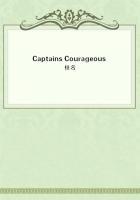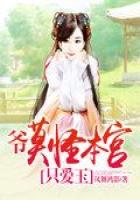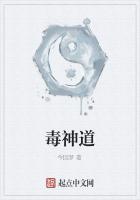Southwest Wind, Esquire, was as good as his word. After the momentous visit above related, he entered the Treasure Valley no more; and, what was worse, he had so much influence with his relations, the West Winds in general, and used it so effectually, that they all adopted a similar line of conduct. So no rain fell in the valley from one year's end to another. Though everything remained green and flourishing in the plains below, the inheritance of the three brothers was a desert. What had once been the richest soil in the kingdom became a shifting heap of red sand, and the brothers, unable longer to contend with the adverse skies, abandoned their valueless patrimony in despair, to seek some means of gaining a livelihood among the cities and people of the plains. All their money was gone, and they had nothing left but some curious old-fashioned pieces of gold plate, the last remnants of their ill-gotten wealth.
"Suppose we turn goldsmiths," said Schwartz to Hans as they entered the large city. "It is a good knave's trade; we can put a great deal of copper into the gold without anyone's finding it out."The thought was agreed to be a very good one; they hired a furnace and turned goldsmiths. But two slight circumstances affected their trade: the first, that people did not approve of the coppered gold; the second, that the two elder brothers, whenever they had sold anything, used to leave little Gluck to mind the furnace, and go and drink out the money in the alehouse next door.
So they melted all their gold without ****** money enough to buy more, and were at last reduced to one large drinking mug, which an uncle of his had given to little Gluck, and which he was very fond of and would not have parted with for the world, though he never drank anything out of it but milk and water. The mug was a very odd mug to look at. The handle was formed of two wreaths of flowing golden hair, so finely spun that it looked more like silk than metal, and these wreaths descended into and mixed with a beard and whiskers of the same exquisite workmanship, which surrounded and decorated a very fierce little face, of the reddest gold imaginable, right in the front of the mug, with a pair of eyes in it which seemed to command its whole circumference. It was impossible to drink out of the mug without being subjected to an intense gaze out of the side of these eyes, and Schwartz positively averred that once, after emptying it, full of Rhenish, seventeen times, he had seen them wink! When it came to the mug's turn to be made into spoons, it half broke poor little Gluck's heart; but the brothers only laughed at him, tossed the mug into the melting pot, and staggered out to the alehouse, leaving him, as usual, to pour the gold into bars when it was all ready.
When they were gone, Gluck took a farewell look at his old friend in the melting pot. The flowing hair was all gone; nothing remained but the red nose and the sparkling eyes, which looked more malicious than ever. "And no wonder," thought Gluck, "after being treated in that way." He sauntered disconsolately to the window and sat himself down to catch the fresh evening air and escape the hot breath of the furnace. Now this window commanded a direct view of the range of mountains which, as I told you before, overhung the Treasure Valley, and more especially of the peak from which fell the Golden River. It was just at the close of the day, and when Gluck sat down at the window, he saw the rocks of the mountain tops, all crimson and purple with the sunset; and there were bright tongues of fiery cloud burning and quivering about them;and the river, brighter than all, fell, in a waving column of pure gold, from precipice to precipice, with the double arch of a broad purple rainbow stretched across it, flushing and fading alternately in the wreaths of spray.
"Ah!" said Gluck aloud, after he had looked at it for a little while, "if that river were really all gold, what a nice thing it would be.""No, it wouldn't, Gluck," said a clear, metallic voice close at his ear.
"Bless me, what's that?" exclaimed Gluck, jumping up. There was nobody there. He looked round the room and under the table and a great many times behind him, but there was certainly nobody there, and he sat down again at the window. This time he didn't speak, but he couldn't help thinking again that it would be very convenient if the river were really all gold.
"Not at all, my boy," said the same voice, louder than before.
"Bless me!" said Gluck again, "what is that?" He looked again into all the corners and cupboards, and then began turning round and round as fast as he could, in the middle of the room, thinking there was somebody behind him, when the same voice struck again on his ear. It was singing now, very merrily, "Lala-lira-la"--no words, only a soft, running, effervescent melody, something like that of a kettle on the boil. Gluck looked out of the window;no, it was certainly in the house. Upstairs and downstairs; no, it was certainly in that very room, coming in quicker time and clearer notes every moment: "Lala-lira-la." All at once it struck Gluck that it sounded louder near the furnace. He ran to the opening and looked in. Yes, he saw right; it seemed to be coming not only out of the furnace but out of the pot. He uncovered it, and ran back in a great fright, for the pot was certainly singing! He stood in the farthest corner of the room, with his hands up and his mouth open, for a minute or two, when the singing stopped and the voice became clear and pronunciative.
"Hollo!" said the voice.
Gluck made no answer.
"Hollo! Gluck, my boy," said the pot again.
Gluck summoned all his energies, walked straight up to the crucible, drew it out of the furnace, and looked in. The gold was all melted and its surface as smooth and polished as a river, but instead of reflecting little Gluck's head, as he looked in he saw, meeting his glance from beneath the gold, the red nose and sharp eyes of his old friend of the mug, a thousand times redder and sharper than ever he had seen them in his life.

